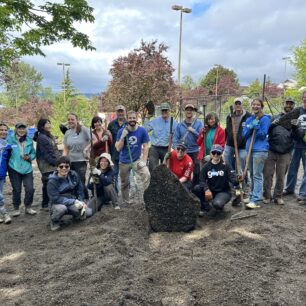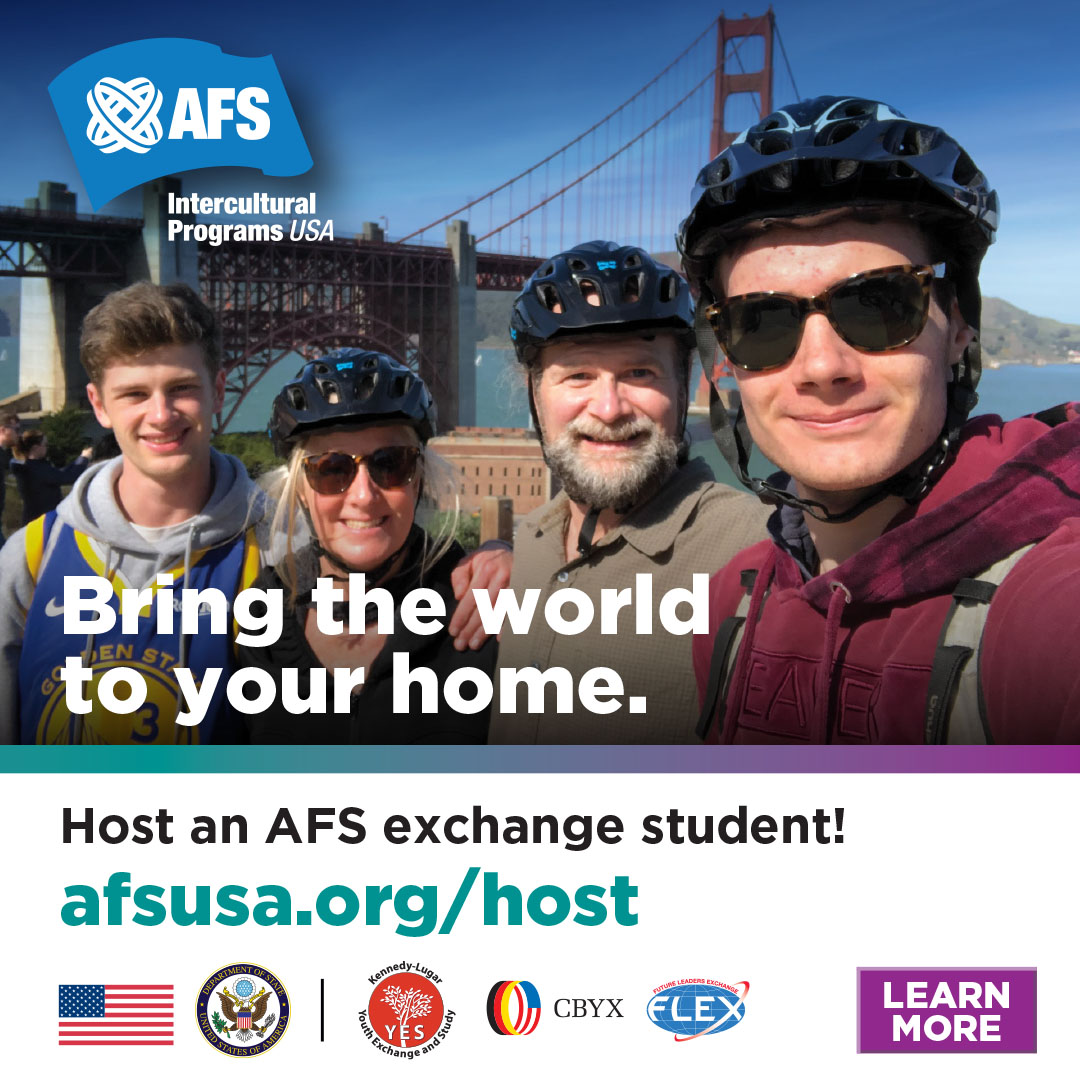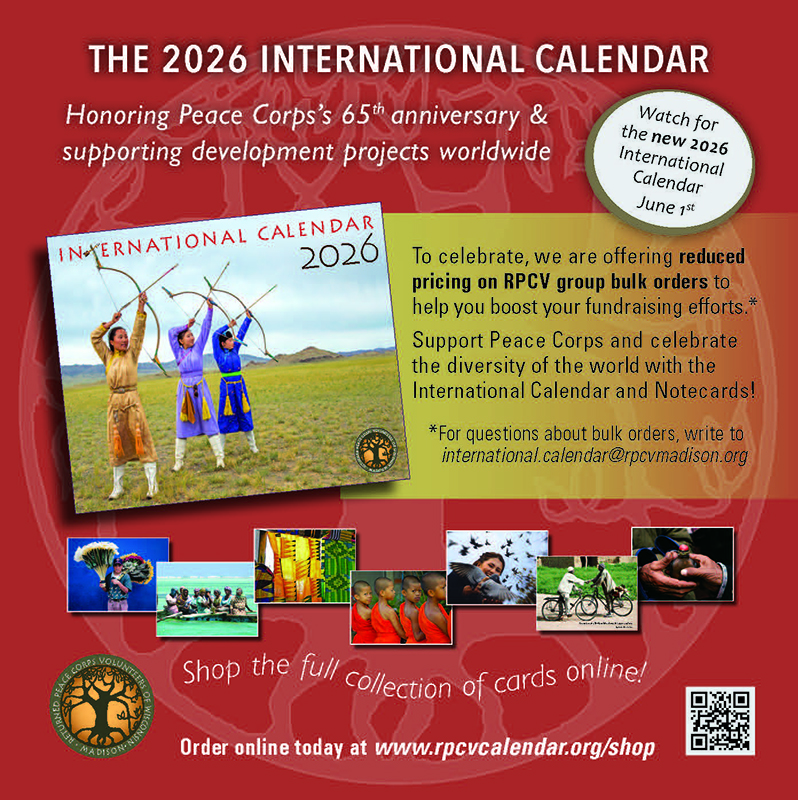
Why Graduate School?
The return from Peace Corps service could just be the perfect time to pursue a graduate degree
Time moves fast and slow in the Peace Corps. There’s the blur of training, the slog of setting up at site, and then, just when things start clicking, the race to finish up your projects and cobble together a plan before your close-of-service catapults you back home.
After their service ends, about one in four Volunteers pursues grad school, according to former Thailand Country director and former NPCA president Kevin Quigley. The reasons are manifold, from gaining skills and contacts, to launching a meaningful career, and finding kindred spirits in international programs full of returned Peace Corps Volunteers.
Mark Gearan, Peace Corps Director 1995–99, and now president of Hobart and William Smith Colleges in Geneva, New York, called Peace Corps service, followed by grad school, a “potent combination” that not only helps individual RPCVs find meaningful work, but also helps fulfill the agency’s Third Goal—‘bringing the world back home’—and enriching American universities and professional fields with their experiences gained overseas.
For those who want to continue down the track of engaging the world and making the world a better place, I think a master’s degree in international relations is a terrific next step
— Admiral James Stavridis
Knowledge and Skills
In today’s world, gaining entrée to international careers—the type of work to which many Returned Peace Corps Volunteers aspire—often requires an advanced degree. “Grad schools, APSIA (Association of Professional Schools of International Affairs) members in particular, have pipelines into the world of international work,” says Quigley (Thailand, 1976–79), the former president of Marlboro College. “They have deep networks, and they have programs that facilitate that.”
Grad school gives returned volunteers the knowledge and skills to build upon their experiences and propel them into purpose-driven careers. “Some of our returning PCVs are looking to continue to work in the NGO world or with multilaterals. Others are looking to transition to positions in government, and yet others are considering transitions to the private sector,” says Jim Levinsohn, dean of Yale’s Jackson School of Global Affairs. “But almost all of them leverage the experience that they got in the Peace Corps to succeed in in those spheres. And a great school of global affairs enables … the returning volunteers to do just that: to build on their experiences and to pick up the set of skills that they need to move their careers forward.”
Other leaders in higher education agree. “For those who want to continue down the track of engaging the world and making the world a better place, I think a master’s degree in international relations is a terrific next step,” Admiral James Stavridis, a former NATO supreme allied commander and past dean of the Fletcher School of Law and Diplomacy at Tufts University, told WorldView recently.
Students at Fletcher receive a “highly curated” development curriculum that teaches you how to “step up from the level of being in a village and helping develop a microeconomy to how to scale up and help [a] nation improve its capabilities,” Stavridis says. “And that prepares you for a job in the State Department, at the United Nations, at USAID (United States Agency of International Development), or any of the international equivalents.”

Expanding Your Network
There’s an instant camaraderie among RPCVs, who, despite having served in different parts of the world, share a bond that can be the basis of new friendships—and professional contacts. International graduate programs are hubs for such meetups, and after living overseas, many returned volunteers feel “at home” at such schools, according to Maj Fischer Poland (1992–1994), the director of External Relations for the International Division at University of Wisconsin–Madison. “I know sometimes it’s a challenge returning from service and not really feeling like going back to a certain place or into a corporate setting,” Fischer says.
“But to come back to a campus that has an international environment that has an international student body, has faculty from the country where you may have served. Those are really also comforting spaces.”
They are also networking hives. “Here at Jackson, we focus on building a pretty tight community,” Levinsohn says.
“When our students leave, every single student knows every other single student, as well as the faculty.” The two-year M.P.P. program only accepts about 40 students per year and places a premium on small-group instruction and interaction.
“That makes for a more fun, a more enriching experience,” Levinsohn explains, but “it actually has real professional ramifications because it’s a network that’s going to be useful … in their careers moving forward. We have a pretty amazing network, and we’re not bashful about using that on behalf of our students,” he continues. The fraction of our students who have job offers on graduation or within 6 weeks of graduation is about a hundred percent—and in many years it’s exactly a hundred percent.”
The Big Picture
Graduate school is about more than just acquiring a credential or getting a job—it can add necessary context and help returned volunteers process their Peace Corps experiences. “It helps us make sense of what we saw, what we learned, what we did, and how to continue to build on that experience in ways that let us make a difference,” Quigley says. Moreover, the “idea of marrying fieldwork and education allows RPCVs to frame things through theory, through conversations with others, and debate on the value of their experience,” Fischer adds.
The benefits extend not only to individual RPCVs, but also to the academic communities. “It’s great for graduate programs to have our PCVs sitting in those classrooms, writing those dissertations or master’s theses,” Gearan says. “It changes and informs graduate programs.” In a larger sense, it also “effectuates the mission of the Peace Corps,” he continues, and pays “a domestic dividend to our own country and to higher education, our own country having an international perspective in the classroom, in classroom discussions, in graduate programs across all different fields … literally ‘bringing the world back home,’ as the Third Goal allows.”
Returned Volunteers have had life experiences that give them maturity and perspective. “The RPCV’s bring value into any classroom discussions because they can connect their experience to some theoretical construct in a way that is as meaningful and informative as it is educational,” says Quigley.
Levinsohn, who teaches economics at Yale and previously lived and worked in Africa, uses the example of a washing machine to explain consumer surplus, a term economists use to describe the difference between what a consumer, in this case RPCVs, is willing to pay for a product versus the price that a consumer actually pays for it. Without fail, he says, it is RPCVs who’ve washed their clothes in rivers, scraped up their hands, and worn semi-clean tattered rags for two years who get the concept instantly. “Thousands,” the students answer invariably when asked how much they’d fork over for a reliable washing machine.
“RPCV’s bring value into any classroom discussions because they can connect their experience to some theoretical construct in a way that is as meaningful and informative as it is educational” —Kevin Quigley
“When I was dean of the Fletcher School of Law and Diplomacy… the Peace Corps Volunteers were just such a wonderful example to the rest of the student body. Certainly, the military veterans were as well, but I loved my Returned Peace Corps Volunteers,” says Stavridis. “What someone brings when they come back from typically two years is just a remarkable sense of our nation and a remarkable sense of the world, and really a … stronger sense of themselves and being part of those bigger things.”
The serendipity of such exchanges reflects the foresight of the agency’s founders. The Peace Corps “was always informed by higher education [and people] who really cared and understood higher education, understood the importance of learning,” Gearan explains. “When President Kennedy asked Sargent Shriver to set up the Peace Corps, one of his early intellectual interlocutors was Father Ted Hesburgh, president of Notre Dame … and in so many ways, Peace Corps service is personified lifelong learning.”
American campuses served as training grounds for early groups of Peace Corps Volunteers, and today, many institutions of higher learning help produce Volunteers through programs such as Peace Corps Prep. Enrolled students at nearly 150 colleges and universities can combine their classwork with hands-on experience and professional development in the “core competencies” that underlie successful service. The certificate students receive at the end gives them an edge (though not a guarantee of acceptance) in the Peace Corps application process. To date, the all-time top volunteer-producing school, sending 2,862 graduates to the Peace Corps, is the University of California, Berkeley, followed by the University of Wisconsin-Madison, which has sent a total of 2,766 of its grads to the Peace Corps.
Many of these schools also welcome RPCVs back as grad students. Fischer says the University of Wisconsin-Madison recognizes “the value they bring to campus, the language skills, the cultural skills.” Their experiences overseas often inform their career choices. Quigley, for example, had a master’s in literature and was on track for a teaching career, but had an epiphany in Thailand that spun him in a different direction. “Economics and politics drive the world, and if I want to make a difference, I needed to learn that,” he says.
That’s when Quigley decided to move to New York and attend Columbia’s School of International Affairs, which launched his career in international consulting. Gearan mentions a Hobart and William Smith College grad who pivoted to public health after the Peace Corps, and got his grad training at Emory University. “His service … expanded his own mind to opportunities … That’s something I really want to do. I found my passion.”

Fischer recalls a woman who helped women start small businesses as a volunteer and then got an MBA after her service, something she’d never even imagined before.
Gearan points out that constant renewal and innovation are baked into the agency’s DNA. “One of the through lines of the Peace Corps has always been innovation … We honor the past … [and] celebrate the founding and the early architects and the genius that’s been a part of the Peace Corps for decades.
“But it also says to me that one of the real values of the Peace Corps and kind of perspectives that Sargant Shriver imbued in it was that need for constant renewal and change and thinking through the world,” Gearan concludes.
This is the essence of higher education—filtering experiences through new ways of thinking.
Graduate school is nice—in theory, but the reality of paying for it can be a challenge. Unlike the military, which incentivizes service by granting generous tuition offsets and lifelong job training and preferences through the GI bill, the Peace Corps offers Coverdell Fellowships, which are administered by the schools themselves and are limited in number and funding. The final cost for RPCV recipients can vary wildly depending on the program. Coverdell Fellows pay nothing at Arizona State University’s Cronkite School of Journalism or Columbia’s Teachers College, $50,000 at Duke’s Global Health Institute, and almost $75,000 a year at Georgetown’s Edmund A. Walsh School of Foreign Service.
Some schools, such as Yale, are able to offer students full funding if they get in, irrespective of financial need. “There’s something very unsettling about asking somebody who has just spent two years doing public service, not highly compensated, to come back and then take on a huge amount of debt,” Levinsohn says. “We’re fortunate that we don’t have to do that.”
For the most part, RPCVs who take out loans to pay for higher education bank on the fact that their improved career prospects will make the investment worthwhile. The one-year preference for federal jobs RPCVs receive upon completion of service can be extended up to three years if they enroll in an eligible grad program immediately after service.
However, if they explore another field before deciding on grad school, that benefit will likely expire before they are able to use it. Even so, many will find ways to make it work. Peace Corps Volunteers excel in problem solving, and as Fischer says, “want to make a difference, are persistent, and known for overcoming obstacles.”
Related Articles

Made in America
Charlie Clifford (Peru 1967–69) is the founder of Tumi Inc., a global travel luggage brand, as well as Roam Luggage.…

“Bigger Than Peace Corps”
California Service Corps is the largest state-based service program in the U.S. , with more than 10,000 volunteers across the…

Signal Boost
The digital world is awash in voices seeking monetary reward or improved social status, as the online acronym goes, IRL…

Garden of Refuge
As part of our commitment to continued service, the Seattle Peace Corps Association (SEAPAX) is partnering with World Relief Western…





